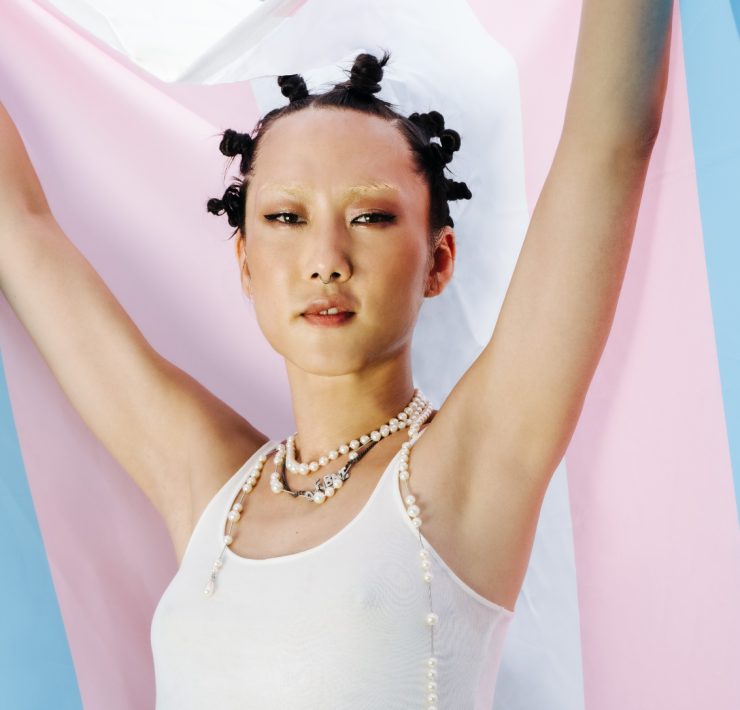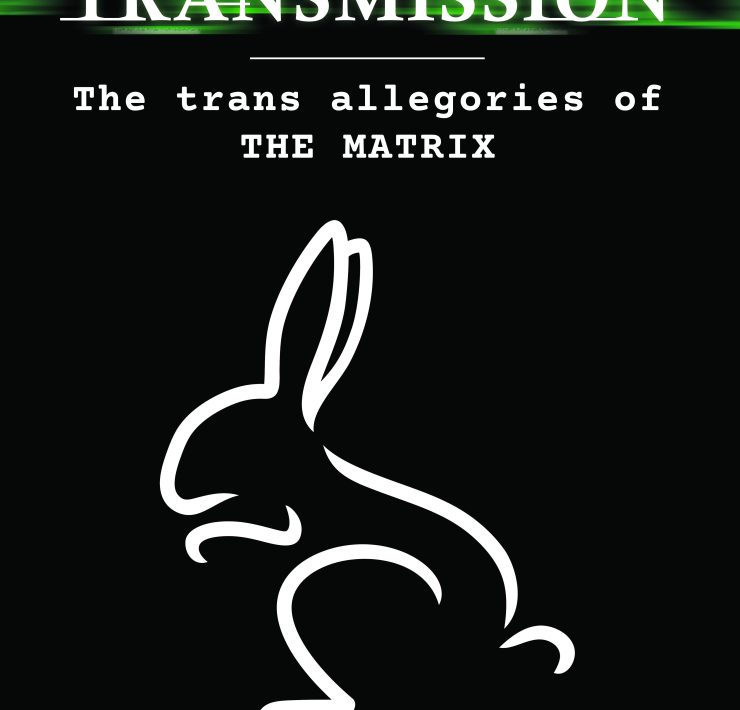The Matrix Is A Trans Movie About Loving Yourself

To me, The Matrix was always a movie about finding love within my own transness; I just didn’t know it yet. As Morpheus says in the movie, like Alice—and Neo—I jumped into the rabbit hole of gender transition without looking back and tumbled into what seemed to be a wormhole with no end. I was obsessed, from the very beginning, with a single conversation between Neo and Morpheus.
It’s the few lines he speaks to Neo, in an attempt to characterize the Matrix: “Let me tell you why you’re here. You’re here because you know something. What you know, you can’t explain, but you feel it. You’ve felt it your entire life, that there’s something wrong with the world. You don’t know what it is, but it’s there, like a splinter in your mind, driving you mad. It is this feeling that has brought you to me. Do you know what I’m talking about?”
Neo answers simply: “The Matrix.” But I think he’s wrong. I think Morpheus was talking about accepting—and loving—ourselves, all along.
Accepting a GLAAD award alongside her sister, Lana, Lilly Wachowski commented specifically about people projecting transness on to their work as filmmakers: “There’s a critical eye being cast back on Lana and I’s work through the lens of our transness. This is a cool thing, because it’s an excellent reminder that art is never static. And while the ideas of identity and transformation are critical components in our work, the bedrock that all ideas rest upon is love.”
For me, the heart of loving yourself is acceptance, the unconditional kind of self-love that comes without expectation, without strings attached.
Hearing these words spoken years ago by my favorite directors struck a chord in my own heartstrings that still rings today. Since the beginning of my transition, I’ve had to learn how to accept—and love—myself. In the process of internalizing this lesson, I learned about self-care and what it means to love myself, to accept who I really am inside, despite what it means for how the rest of the world sees me on the outside.
Morpheus spends the entire movie pleading with Neo to accept that the rules of the Matrix won’t apply to him, if only he can also accept who he really is inside. “What are you trying to tell me, that I can dodge bullets?” Neo asks incredulously at one point. “No, Neo,” Morpheus responds. “I’m trying to tell you that when you’re ready, you won’t have to.”
You see, the movie’s climax rests on Neo’s ability to accept that he is, indeed, “the One,” but that’s not actually the turning point, that Neo has accepted his identity. I think what he’s actually looking for all along is a sign that he can be who he knows he is inside and still find love all the same.
Yes, in the pivotal fight scene where Trinity and Neo rescue Morpheus from the agents’ clutches, Neo dodges bullets just like the agents do. And, in the penultimate scene, even when he fails to dodge different bullets from the same agents, death itself can’t keep Neo down.
But Neo is only able to get back up—and this is crucial—after Trinity finally confesses her love for him out loud. It’s not Neo’s identity as ‘the one’ that gives him the strength to keep getting up, to keep fighting back, it’s knowing that Trinity still loves him despite what seems impossible to accept about himself. This realization, this form of powerful support, gives Neo the strength to seize his superpowers; anyone who has ever experienced unconditional love knows the feeling, that nothing else in the world matters so long as you have that love.
As a transgender woman who has been out for almost a decade and who also has an enormous amount of passing privilege with my own presentation, people who are just beginning to experiment with gender tend to seek me out for advice, the same way Neo seeks out Morpheus.
I have developed a theory over years as a result of these conversations. My biggest question:
“What’s stopping you?”
Most people who experiment with gender divergence, in my experience, struggle with coming out for what it means for their loved ones. The most common reason I get in response is fear. Fear of rejection, fear of being alone, fear of living a life without love. I frequently ask people: “Is that kind of love worth holding on to if it comes with such heavy strings attached?”
The answer I usually get back? That’s not the kind of love anyone wants.
What's Your Reaction?
Jordan Hanson (she/her/hers) is a trans-femme writer and activist in the Denver metropolitan area. Living in Aurora with her husband, Jordan writes about intersectional justice and works with community members to push positive representations of our community forward into the limelight. Jordan has been published previously in other outlets, like AdAge, AdWeek, and Splinter News. She comes from a background in public policy research as well as in social media intelligence and communications strategy. You can follow her on Twitter @jlhanson.










